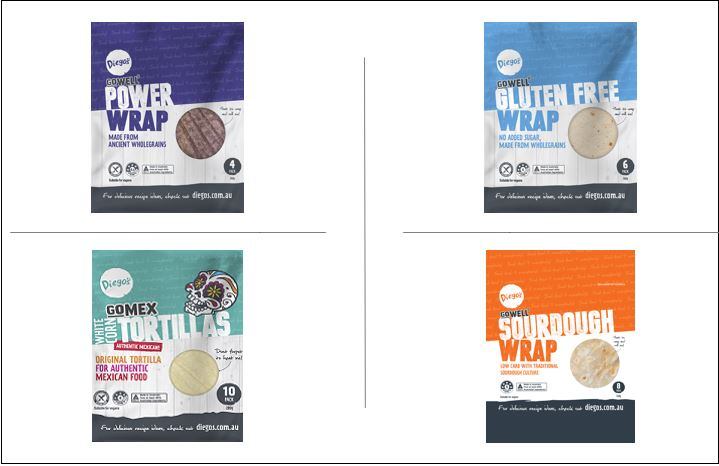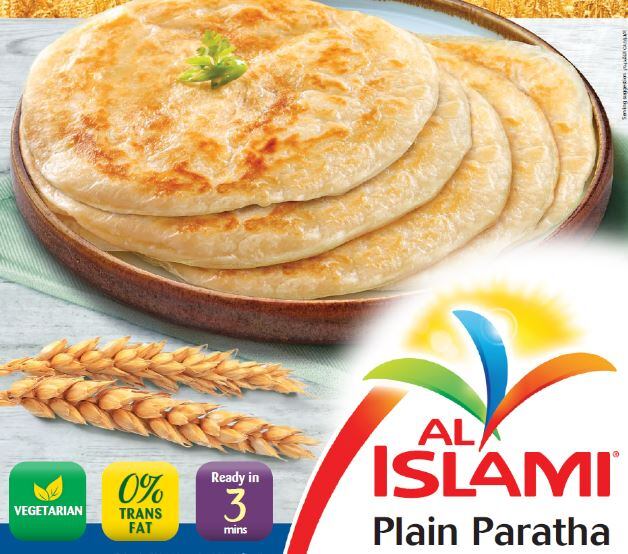“We have definitely seen a rise in the demand for gluten-free and lower carb products since the COVID-19 pandemic hit as more and more people are looking for healthier options, and these trends are most definitely driving our new product innovation efforts,” Diego’s Founder and Managing Director Deann Thomson told FoodNavigator-Asia.
“Most recently, we’re just launched a sourdough wrap in ALDI made with authentic sourdough culture, and this contains just 9g carbs and 100 calories, which is 52% less carbs than our traditional wraps – it’s the sort of product that would appeal those looking to reduce carbs in their diets.
“We’ve also developed gluten free wraps, one using corn and brown rice and another with blue corn, black rice and chia seeds. There’s some education needed here as gluten-free wraps need to be warmed to soften them before rolling them up, but are a good alternative to wheat-based wraps for the gluten-intolerant to prevent bloating.”
Another of Diego’s flagship export products, its traditional Mexican-style white corn and yellow corn tortillas, are also gluten-free.
“The lower carb wraps, gluten-free wraps and classic tortillas are currently our best-selling top three products here and in export markets,” Diego’s Sales Manager John Carmona told us.
“So health and wellness are definitely a priority for many consumers today, and not only did COVID-19 boost this trend, but also the cooking at home trend, which has been reflected in our retail sales boost – people are just going to the shops and buying these products to make their meals at home, and are looking for healthier options to do this.”
Diego’s is not only present in Australia but also exports to several other markets including Malaysia, Singapore, Vietnam, Hong Kong, South America, and the Middle East. The brand often has the distinction of being the only gluten-free wrap option available in a store, for example in Malaysia’s Village Grocer.
“Consumers in different markets have very different taste buds so we really do export a whole range, but not everything is present in every market,” said Carmona.
“In the example of Village Grocer in Malaysia for example, the main item the supermarket decided to range was our Gomex White Corn Tortillas to provide a gluten-free option.”
Thomson added that Diego’s products also have the distinct advantage of hitting many trends that are increasing in demand as of late, including being plant-based, suitable for a keto diet, lower in sugar, and using wholegrains.
“Other things we are looking at now include a further reduction of carbohydrates to existing products, as well as the sodium side of things as the demand for less salt is also on the rise,” she said.
“Reducing sugar and improving protein profiles are also important areas of the reformulation focus for us, and we will be innovating a whole new gluten-free style of wraps soon as well as more lower carb products later this year and into early 2022.
“The main thing now is also to ensure the taste profiles and textures stay good and acceptable to consumers though – we’ve managed to do it so far so we’ll keep working on that.”
Diego’s products are also available in independent supermarkets such as IGA, Foodworks, Drakes, higher-end health stores, Chemist Warehouse and several online stores.
Sustainability focus
Diego’s uses a plastic wrapping for its wraps, and given the increasing consumer hunger for sustainable packaging, the firm recently changed its retail packaging to make this suitable for recycling via the national RedCycle programme.
“We’re looking for the next possible extreme in terms of packaging to keep up with sustainability demands – but at the same time, we need to ensure that the tortillas and wraps can be kept fresh and have a suitable shelf life,” said Thomson.
“So whilst we keep working on this, we’re also doing other things to reduce our footprint such as using solar power for manufacturing, as well as recycling all cardboard, paper and plastic.One of our proudest projects is where we give all our excess product – usually tortillas that don’t make the cut or were samples, and we have loads of these – to local farms, and have these distributed to cattle as feed. So the cows can eat tortillas too!”




